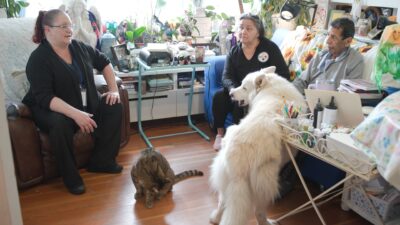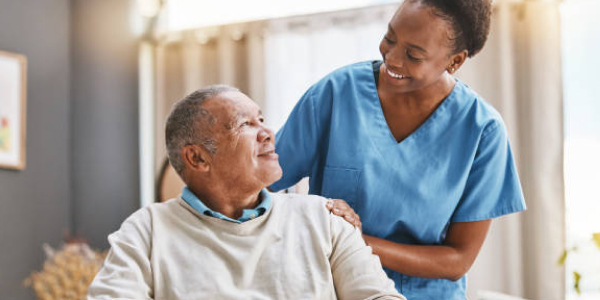Dr. Ruth Westheimer, the well-known sex therapist and talk-show host known as simply Dr. Ruth, has embarked on a new crusade—combatting loneliness. It is a worthy challenge. The U.S. Surgeon General Vivek Murthy has called loneliness an epidemic and a public health crisis, raising awareness about the extensive risks that loneliness entails—comparing it to smoking 15 cigarettes a day.
Naturally the death of a spouse or close companion can lead to a deep sense of loneliness. After all, we lived day by day with that person. We shared so much of life that there is stark absence of that person’s presence. We feel it daily, even hourly. We miss the shared meals. We long to wake up with the person or simply to watch television together. We turn in the middle of a movie or newscast to share a moment. But no one is there.
Moreover, once part of a couple, we now live as a single. Friends and even family may have related to us as a unit rather than as individuals. Our loneliness can be compounded when others seem unready or unwilling to accommodate this change. Jillian, for example, began to feel excluded from some circles that once welcomed both her husband, Rocco, and her.
Other times, we may feel the loneliness in a crisis. We now have to face these critical situations alone. We may long for the support or counsel of the person who died. We simply do not know if and how we can face this alone. Loneliness can be scary.
Loneliness can also be present as we face the milestones of life. We miss the opportunity to share these moments—to celebrate together graduations, weddings, and births with someone who truly is invested in that event as deeply as we are.
The first step in overcoming loneliness requires an assessment. When is the loneliness greatest? Are there times of the week or the day where that loneliness is more intense? Once we see a pattern, we may be better able to find a solution. For Jillian, Sunday afternoons had been a quiet time with Rocco. They might shop together, do chores, or simply enjoy time with each other. Once she realized how intensely lonely she was on Sundays, she made sure that she always had plans. On that day, she planned never to be alone.
Jon’s loneliest time was Saturday nights. That was his “date night” with his spouse. He and Amanda ate out every Saturday evening—sometimes catching a movie. He mentioned this in his grief group and another member shared that Saturday was his worst night as well. They and some other men in the group decided they would meet for pizza and watch college football the next Saturday, which turned into a weekly activity as they got together, shared a meal, and enjoyed football, then basketball, and then baseball. At first, Jon mentioned that they were “lonely together.” But now Jon looks forward to Saturday nights, even enjoying weekly texts as they settle on their plans.
Developing new relationships, then, is another strategy to combat loneliness. We can cultivate new relationships, drawing strengths from that support. We can also cultivate our own inner resources, our own personal strengths, and our own spirituality. When we recognize how resourceful we can be, even in difficult times, we may feel less lonely even when we are alone.
By Kenneth J. Doka, PhD, MDiv, is Sr. Vice President, Grief Programs, HFA and recipient of the 2019 Lifetime Achievement Award from the Association for Death Education and Counseling.


